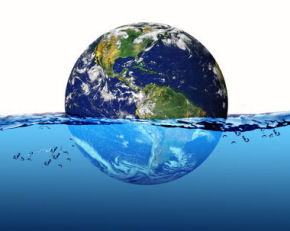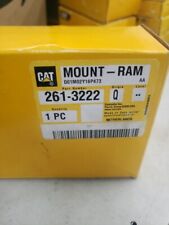
A national survey developed by the California Academy of Sciences and polling organization Harris Interactive, reveals that the American public lacks basic scientific knowledge at a time when science-related issues – bioengineering, mapping the human genome, environmental problems, global climate change, cloning, the increasing extinction rate, the reliability of energy resources, and the future of science-based business and technology – have an increasing impact on daily life. The public has a distinct sense that it is falling behind in science: 43% of Americans say they understand less and less of what scientists are doing today.
While crucial social, economic, and health issues now facing the public are being profoundly influenced by new scientific research, a startling number of Americans cannot answer even basic scientific questions:
- More than half of all American adults (53%) do not know that the Earth goes around the Sun once a year.
- Nearly half (48%) do not have a sense of what percentage of the Earth’s surface is covered by water.
- And 42% can’t answer correctly when asked if the earliest humans lived at the same time as dinosaurs.
- Nearly 1 in 5 people (19%) couldn’t answer any of these questions correctly.
The survey reveals a scientific knowledge gap that is particularly distressing at a point when science literacy has become essential to participating in our democracy and supporting the economy. Recent debates over arsenic levels in drinking water, testing for salmonella in school lunches, oil-drilling in the Arctic National Wildlife Refuge, the Kyoto global warming agreement, as well as the California energy crisis, illustrate the type of science-based issues the country confronts every day.
“Not only is science changing dramatically, the challenges we face in our world are changing as well,” says Patrick Kociolek, Curator and Executive Director of the California Academy of Sciences. “We are confronted with critical decisions on how to balance the needs of the environment with the need for continuing economic growth and prosperity, and how to meet the increasing need for reliable energy while protecting the nation’s air, water, and land. Individuals need a basic grounding in science to be able to take part in the discussion of these issues. Without that knowledge, they can’t participate in the democratic process and become alienated not only from the discussion, but from the community. The Academy has a profound responsibility to make reliable, accessible scientific information available to inform these deliberations and to help find sensitive and workable solutions to these pressing issues.”
When asked whom they trust as a reliable source of information about the environment and the natural world, the public overwhelmingly looks to scientists for a reliable perspective. Teachers ranked a distant second, while government officials and business leaders tied for last place.
- Scientists 64%
- Teachers 15%
- Reporters 6%
- Government Officials 3%
- Business Leaders 3%
By giving the public the tools to evaluate scientific arguments, they gain a better ability to judge the trustworthiness of the information they hear. Such knowledge would help frame more open and productive discussions of difficult issues.
While the public recognizes its declining scientific understanding, it also expresses deep interest in scientific topics and a desire to know more. The vast majority of all adults say they are either “very” or “moderately” interested in:
- Environmental Issues (95%)
- The Future of Energy Resources (94%) �
- Scientific Discoveries (92%)
Large numbers of Americans say knowing more about science and the way it works would help them to:
Make more informed choices for their own health and physical well-being (88%) Satisfy their own curiosity (83%) Make more informed choices as consumers (83%) Make more informed choices for their children (78%) Make more informed voting decisions (62%)
The public strongly recognizes the ability of science to improve and enrich their lives, and demonstrates the belief that greater knowledge of science would help them be better parents, consumers, and citizens.
The Academy’s survey found that more than 3 out of 4 people (77%) say there is a lot of stress placed on the natural world today, and 69% say the actions of humans are a major factor in causing this stress. Two-thirds of Americans (66%) voice concern about the impact the current extinction of species has on humans. And the public expresses a resounding sense of their interrelationship with the earth’s living systems – a strong majority (88%) say they feel a connection to the natural world.
But the public isn’t sure what they can do to help. Only 23% feel very knowledgeable about environmental issues and only 1 in 5 (21%) feel very knowledgeable about what they can do personally to protect the natural world.
These dramatic findings emphasize the growing need and hunger for reliable explanations of the complex and changing body of scientific knowledge. In recognition of this national need, the California Academy of Sciences is announcing plans for a comprehensive upgrade and re-design of its public spaces, exhibition halls, Web site, educational resources, and scientific research facilities. The Academy will use the results from its survey in the development of innovative exhibitions and educational initiatives that will unite people with the sciences and with nature in profound, new ways.
Founded in 1853, the Academy is the only cultural institution in the United States that combines a major aquarium, planetarium, and a natural history museum. The Academy is also one of the country’s premiere centers for research in the natural sciences. The Academy has a staff of 30 Ph.D.-level scientists – supported by more than 100 Research and Field Associates and over 300 Fellows – who launch dozens of expeditions each year to explore the natural world and discover more about our planet.
Given the high level of trust the public shows in information presented by scientists, the California Academy of Sciences has both an opportunity and a responsibility to interpret for the public the key scientific issues that are changing our world. In its new exhibitions and programs the Academy will use its extensive scientific expertise to bridge the scientific knowledge gap, provide reliable information to help the public understand conservation issues, reveal possible implications of human activities, and suggest positive steps for personal involvement.

















Comments are closed.